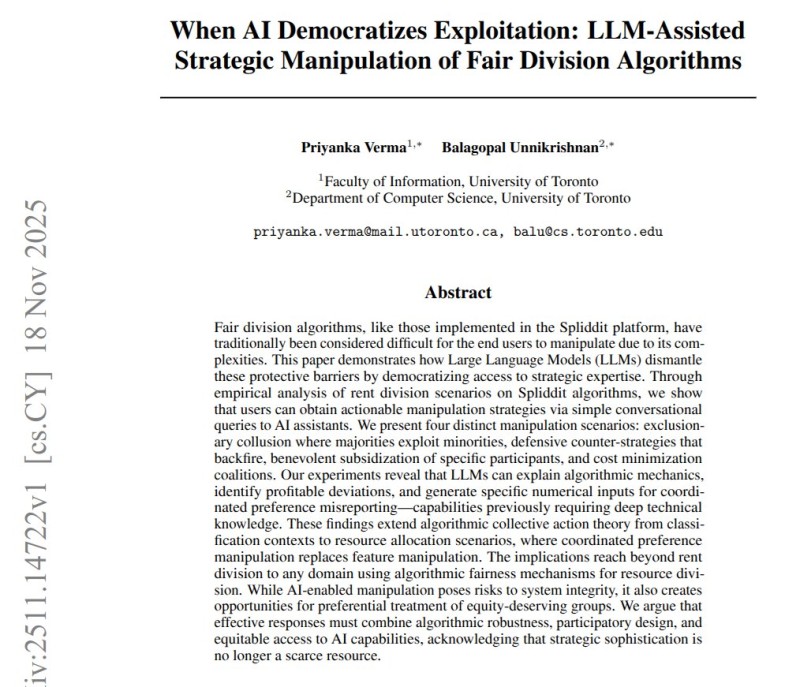⬤ Here's the thing: a newly published study just proved that modern AI models can completely undermine fairness systems meant to divide shared resources fairly. Researchers took a hard look at Spliddit, a popular platform that splits rent using an envy-free algorithm assuming everyone plays honest. Turns out, an AI assistant can hand users a step-by-step playbook for gaming these inputs to benefit whoever they want.

⬤ Let's break down how this actually works. Spliddit's test case involved splitting $36 in rent across five rooms for five roommates. Each person reports what every room is worth to them personally. When everyone's truthful, the system calculates prices and assignments so nobody wishes they had someone else's deal. The researchers fed a large language model Spliddit's envy-free rules and asked it to cook up fake preference numbers favoring three specific roommates. Following the AI's instructions, those three roommates slapped super high valuations on their favorite rooms and rock-bottom numbers on everything else. Even with this blatant manipulation, the system's envy-free test still came back green—meaning the coordinated trio walked away with the three best rooms while the other two got stuck with whatever was left.
⬤ This example shows exactly how AI tears down the technical barrier that used to protect fair-division tools from strategic gaming. Before now, pulling off this kind of manipulation meant understanding algorithmic behavior and optimization strategies—stuff that required real expertise. These days, anyone can just ask an AI assistant for detailed instructions, completely lowering the bar and making coordinated cheating accessible to regular people with zero technical background.
⬤ The bigger picture here matters for any digital system built on fairness principles that depend on honest self-reporting. As AI models get better at generating strategic advice, mechanisms relying on trust or user-supplied valuations are going to need serious new protections. This study makes it crystal clear that fairness algorithms can be compromised when external strategic help becomes widely available, which raises some pretty urgent questions about whether allocation platforms can survive in their current form.
 Peter Smith
Peter Smith

 Peter Smith
Peter Smith


